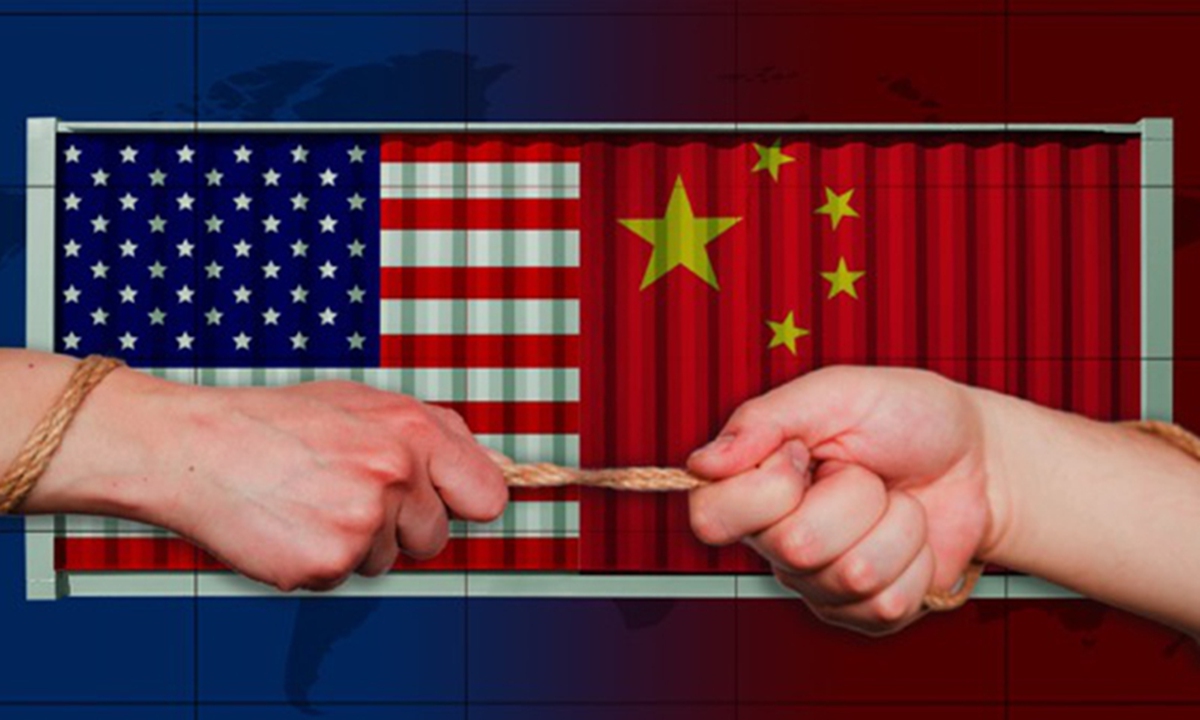
China US Photo:GT
US President Joe Biden said on Tuesday that he was considering eliminating some of the tariffs imposed on Chinese imports, in a bid to help tame decades-high inflation in the US.
Biden's latest statement, which came after similar remarks from senior US officials, including US Trade Representative Katherine Tai and US Secretary of the Treasury Janet Yellen, about potential changes to the tariffs that were imposed by the Trump administration, could be regarded as a welcome development for China-US trade.
The underlying reason for the US' likely elimination of tariffs against Chinese goods is the US' own skyrocketing inflation, which hit 8.3 percent year-on-year in April. Still, the long-anticipated move would no doubt be a step in the right direction that will benefit the US, China and the world.
China's willingness to insist on economic and trade cooperation, instead of confrontation, with the US remains unchanged, and it is hoped that the US is not just once again engaged in empty talks when it comes to the tariff issue, but actually put the word into action as soon as possible.
At the same time, however, it is important to note that even if the US moved to drop the tariffs, it does not mean that the US will stop the crackdown on Chinese technology companies. For example, the US Department of Commerce is considering expanding an existing ban on American suppliers selling advanced chipmaking equipment to Chinese companies, according to a report by The Information on Monday. While it remains unclear if the news is true or not, there are still solid facts that can prove that the US technology suppression against China hasn't changed at all.
Clearly, the US is deploying double-faced tactics with China. But China is no stranger to such tactics. Today's China has more capabilities and sufficient strength to tackle the pressure and challenges it faces. The fact that we have successfully dealt with external suppression and kept its impact on the Chinese economy under control over the past few years is a testament to this. With resilient economic fundamentals, China has the initiative to tackle challenges amid the complicated international and domestic economic environment.
While the US may not give up its crackdown on Chinese technological development to weaken China's competitiveness, it cannot crush China's determination in pursuing independent research and development. In fact, the brutal US suppression will only push Chinese entities to make adjustments and accelerate breaking through Washington's containment.
It should be noted that China-US trade is not determined by the rules unilaterally defined by Washington, nor will it move in the direction of Washington's selfish wish. The US wants China's affordable goods to help alleviate its inflationary pressure, while at the same time restricting Chinese supply chains from obtaining high-tech parts and components. Such double-faced intention is not in conformity with the rules of international trade and will fail in its purpose.
If anything, Chinese products are under great pressure for price adjustments with global raw materials prices and shipping costs rising sharply. And the US needs to take its share of the burden.
The US has acted in accordance only with its own interests when it comes to handling economic and trade relations with China. But China has made it clear that it would not be bullied or forced into making concessions. China-US trade should be mutually beneficial. The US needs to give mutual interests a think instead of blindly seeking to become the only winner.




